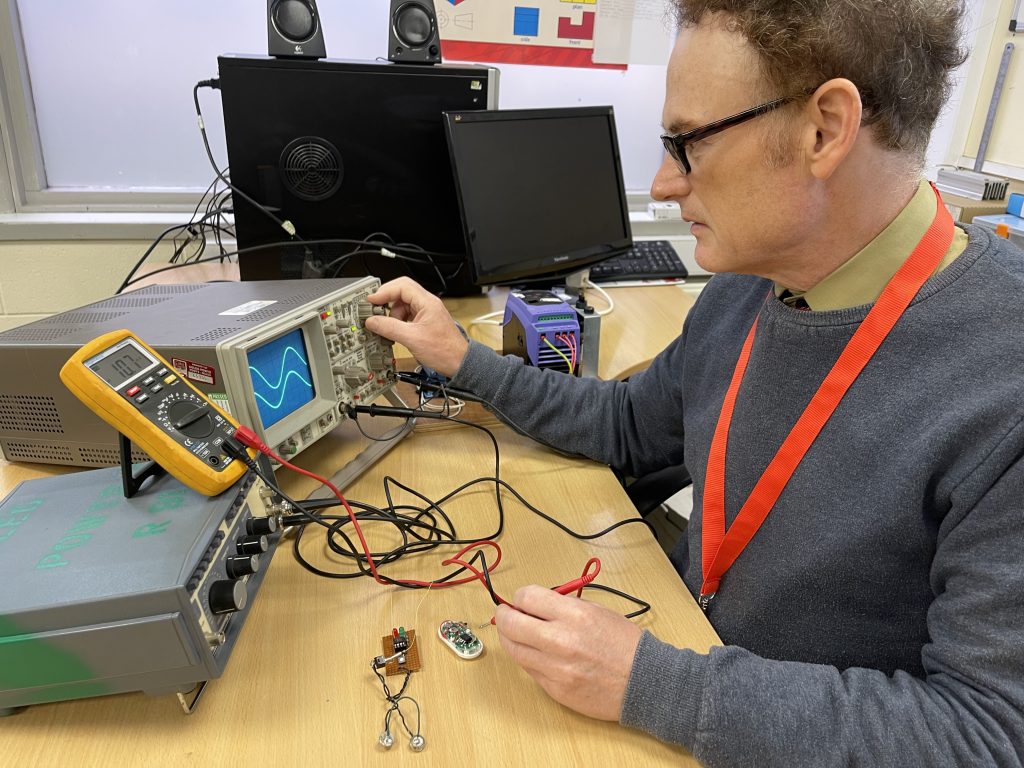
Newtown College is delighted to welcome on board a new engineering lecturer, Andrew Herbert who has a wealth of experience in electronics.
Andrew has a long history in teaching internationally, having taught maths, physics, IT and electronics from America and South Korea to the Middle East and Europe. His industry experience began back in the early 90s after he did a work placement with Control Techniques, and he later worked for Ferranti Electronics and then British Telecom before embarking on a career in teaching.
Andrew’s interest in electronics goes beyond the classroom and led to his creation of a palette checker system to measure a palette’s integrity in real-time, by using ultrasound transducer sensors. The device was entered for a Government DT Engineering SMART Award.
The addition of Andrew’s knowledge to the department has enabled the College to incorporate an electronics unit on to the Level 2 part-time and full-time engineering courses. It also supports the Group’s advancement toward Automation, Industry 4 Net zero and commercial courses which will be available in the near future.
The electronics assembly industry is one of the world’s largest, and it is expected to continue growing – from portable devices, wearable electronics, and even self-driving cars and artificial intelligence. The skills and knowledge gained by studying electronics is sought after by many of our local employers.
Nidec, Recco, Wipak, Makefast, RM Group and others depend on either designing and manufacturing electronic/robotics as their business or using and maintaining such equipment as part of their manufacturing processes, with Invertek in Welshpool recently investing in the business to create over 250 more jobs in the area over the next five years.
Aimee Lane, Head of Engineering at NPTC Group of Colleges said: “We are pleased to integrate electronics into the engineering courses at Newtown College. There is a growing demand for these skills both with local employers and internationally. Knowledge in Electronics Engineering goes beyond creating electronic circuits and can develop into specialisms, these are Industry 4 skills important in helping drive the net zero transformation. We look forward to offering commercial courses in electronics in the near future”.


